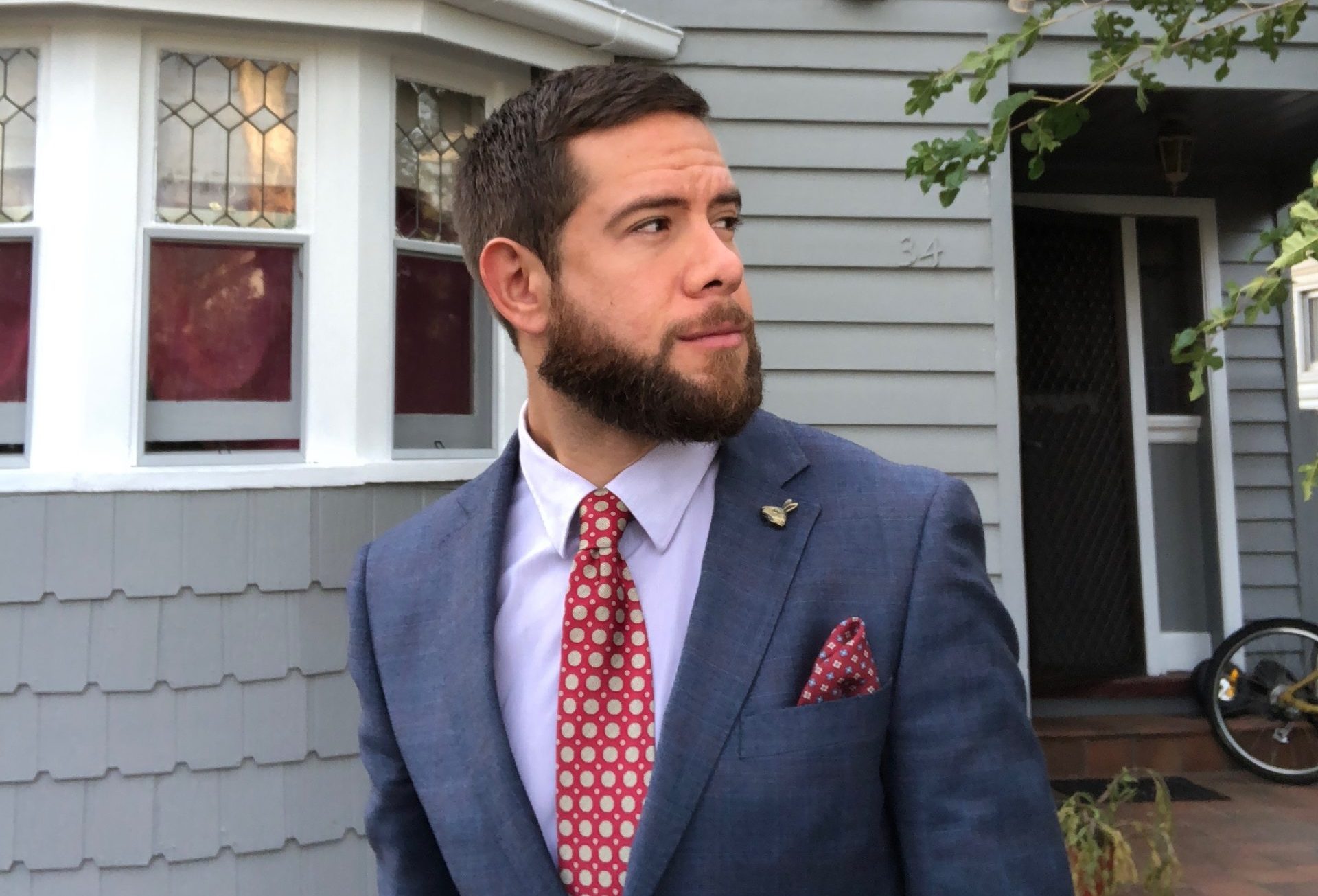Interview: Declan Fry – 2022 Stella Prize Judge

An interview with writer, poet, essayist, and 2022 Stella Prize Judge, Declan Fry
What excites you about judging the 10th Stella Prize?
The chance to spend time with the authors. It’s comforting to look back and make sense of things. That’s what writing itself is: making sense of things. I find it both humbling and gratifying. Humbling, because you learn how large the world is – and how long a year can be. Gratifying, because you’re able to create something, as the authors have; you’re able to make sense of what has happened and honour it in some way. I think that’s what prizes are about, at their best. And the Stella Prize has a history of drawing attention to underappreciated work, particularly through its longlists.
What do you look for in a great book?
Voice. Insight. A sense of frisson.
What’s really lovely is the feel of an author letting go; throwing out the rulebook and doing something dangerous and unexpected. There’s a mythos suggesting this takes place somewhere between the third and the sixth book, but it can happen anytime. The same ingredients tend to be what produce great criticism, too.
The surest recognition is a shiver or pang or throb. Something akin to the feeling of being inspired to create yourself. Now I am in that person’s debt, you say. A relationship is created; a special bond. The two of you will never be the same again.
What’s really lovely is the feel of an author letting go; throwing out the rulebook and doing something dangerous and unexpected.
What impact has the Stella Prize had on you personally as both a writer and a reader?
It’s a record of our writing – of what has been and where we’re going. You can read a kind of epic novel in every year’s longlist. They help to keep certain authors and novels in the cultural conversation. Stella brings readers’ attention to work that might have otherwise been overlooked.
Poetry’s entry to the fold is also exciting – it will be good to see it receive the consideration and attention of the Prize.
What was the last book you read by an Australian woman or non-binary writer that you’d recommend?
Josephine Rowe’s Here Until August. I can’t tell you how shocked I was by stories like ‘Anything Remarkable’ and ‘Chavez’. Nobody has the right to be that good. There’s something threatening about it. When you read work like that, you don’t feel as if you’re qualified to write the ingredients on a cereal package, let alone a book.
2022 will be the first year that poetry collections are eligible for the prize. Who are some of your favourite poets, and do you have a particular poem or collection you often return to?
Philip Hammial is one of my favourites. Poems like ‘Wisdom’ are witty, profound, and devastating in the way of Janet Frame or Samuel Beckett. I also have strong feelings for Gig Ryan, Emma Lew, Lionel Fogarty, Fay Zwicky, Jordie Albiston, Peter Boyle, Pam Brown, and Jennifer Maiden.
Stateside, I’ve been haunted for a long time by the poetry of May Swenson, Denise Levertov, A.R. Ammons and Mark Strand. Sharon Olds’ Stag’s Leap, too – an often unbearably poignant look at marital separation.
One of my favourite poems is Brian Turner’s ‘Elegy for Peter Hooper’. It’s a simple, quiet poem – and one of the most beautiful things I’ve ever read.
What’s your favourite independent bookstore, and what do you love most about it?
Paperback Bookshop. Few things are as comforting, late at night, as seeing their lights on at the end of Bourke Street. Hang around long enough and you’ll meet some of the loveliest readers and writers around. I like the way the books are piled up in the corners like a secondhand store, allowing something novel and unexpected to assert itself. It’s good to let serendipity get a foot in the door sometimes.
When you’re not reading books, how do you spend your spare time?
I’m very passionate about music. I do a pretty good imitation of someone who is able to play guitar and piano. At the moment I’m enjoying The Weather Station’s latest record, Ignorance, for its poetry and shimmering musical landscapes. And Indigo de Souza’s ‘Hold U’, one of the best songs I’ve heard in a while.




